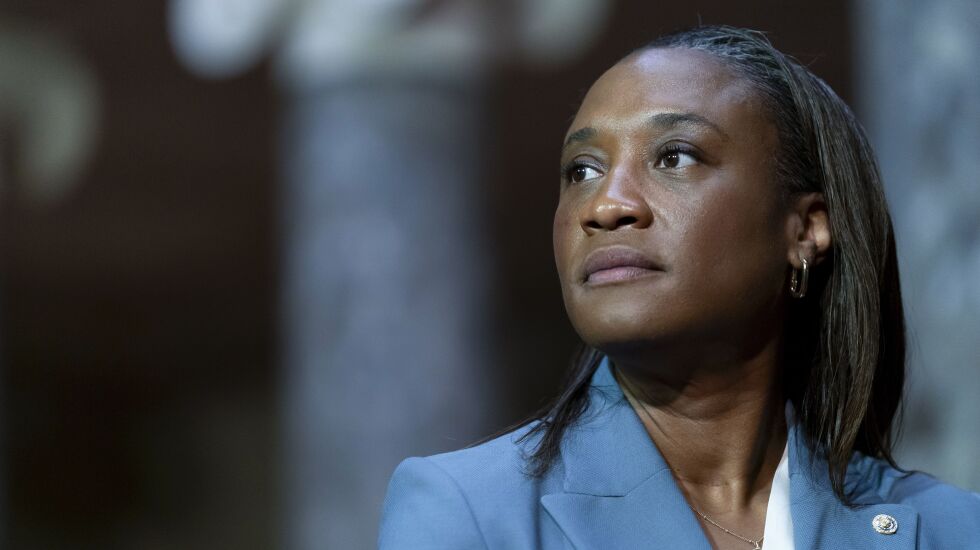
More than 2,000 Americans have served in the U.S. Senate in its 234-year history. Only three of them have been Black women. Only three openly LGBTQ members have served.
Laphonza Butler’s appointment to the Senate from California, by Gov. Gavin Newsom, is a small but critical step toward a legislative body that fully reflects the diversity of the nation it serves. Her unique perspective is desperately needed at a moment when extremists across the nation are engaged in an unprecedented crusade to suppress LGBTQ voices, erase Black history, criminalize reproductive health, and weaken workers’ rights.
By any standard, Butler’s qualifications for the office are impressive. Her campaign for fair wages while president of SEIU California has led to boosted pay for at least 26 million workers, including 12 million workers of color and 18 million women.
As the head of Emily’s List, she helped elect nearly 500 defenders of abortion rights — 40% of whom are women of color — to local, state, gubernatorial, and federal office last year.
As a guest on the National Urban League’s State of Black America Podcast last year, Butler spoke powerfully about her vision for the country.
“An incredibly important indicator of how a leader is going to show up on behalf of their community when they are elected is whether or not they respect the right of women to make choices about their own health and their own bodies,” she said. “And when they do, when they are positive in that position, they are more likely to support issues like child care, issues like paid family leave, issues like making sure that health care is more accessible and available. There are lots of issues voters should be concerned about, but at its core is the fundamental freedoms of this country and what we want this country to be for generations to come.”
A career in activism
Her commitment to economic justice is deeply personal. After her father died when she was just 16, her mother sometimes worked three jobs at once to support her family. Few members of the Senate — or any branch of the federal government — can speak from the experience of wondering where their next meal would come from.
A high-achieving student and scholarship recipient, Butler chose to attend the historically-Black Jackson State University, another biographical detail that sets her apart from the vast majority of her Senate colleagues. But it also puts her in such illustrious company as Vice President Kamala Harris, voting rights activist Stacey Abrams, and fellow Georgia Sen. Raphael Warnock.
She credits her Jackson State professors, SNCC activists and CORE organizers among them, for inspiring her to pursue a career in social justice and activism. The question she faced most often in the classroom, she has said, is “What are you doing for freedom today?”
The U.S. Senate still has a long way to go toward racial and gender parity. It remains 88% white in a nation that is about 60% white, and 75% male. The 25 women currently serving are the most in history, and together with the House, the 118th Congress is the seventh Congress to break the record for racial and ethnic diversity set by the one before it.
The National Urban League is encouraged not only by Butler’s record on economic justice and reproductive freedom, but also her support for tackling the climate crisis and reimagining the nation’s criminal justice system.
When she became the first mother to lead Emily’s List in its four-decade history, she said her own daughter “inspires me every day to show up and do the work to make sure every young girl knows they belong anywhere they choose to be.”
That includes the House, the Senate, and the White House.
Marc H. Morial is president and CEO of the National Urban League and former mayor of New Orleans from 1994 to 2002. He writes a twice-monthly column for the Sun-Times.
Send letters to letters@suntimes.com







